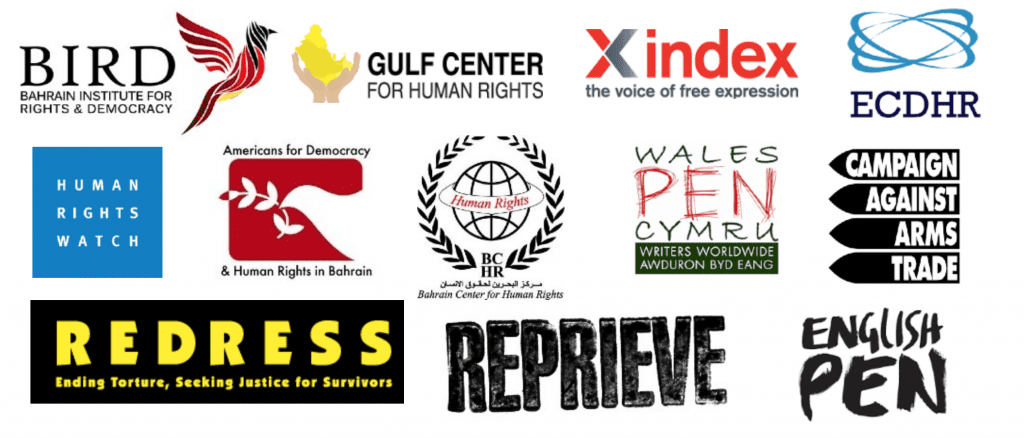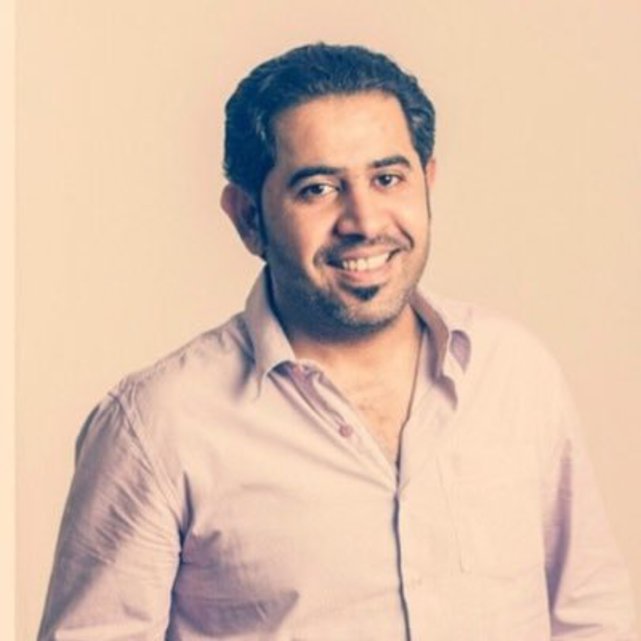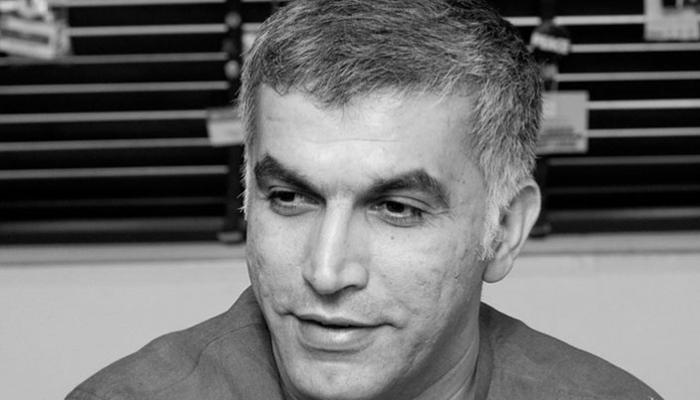4 Dec 2016 | Bahrain, Bahrain Statements, Campaigns, Campaigns -- Featured, Middle East and North Africa, Statements
[vc_row][vc_column][vc_column_text]
Theresa May
Prime Minister
10 Downing Street
London
SW1A 2AA
Cc: Boris Johnson
Secretary of State for Foreign and Commonwealth Affairs
King Charles Street
London
SW1A 2AH
December 4, 2016
Dear Prime Minister,
The undersigned organisations are writing to you in advance of your trip to Bahrain on 6 December to express our concerns over the deteriorating human rights situation in the country and the UK government’s abject failure to exert any positive influence in this regard.
After your meeting with King Hamad at 10 Downing Street on October 26, 2016, when he invited you to be the “guest of honour” at the Gulf Cooperation Council Leaders’ Summit, your office issued a statement referring to “the progress that had been achieved through the King’s ongoing domestic reform programme.”
Unfortunately, there is no evidence to support any claims of progress where human rights are concerned. In fact there has been a marked deterioration in the human rights situation in Bahrain since June 2016, when the authorities dissolved the main political opposition group, al-Wifaq, jailed the country’s leading human rights activist, Nabeel Rajab, and harassed and prosecuted Shia clerics who peacefully protested the arbitrary revocation of the citizenship of al-Wifaq’s spiritual leader, Sheikh Isa Qasim.
In November, authorities charged Ebrahim Sharif, a prominent political activist, with “inciting hatred of the political system” after he criticised Bahrain’s government and a state visit to Bahrain by Britain’s Prince Charles, which was undertaken at the request of the British government. Although authorities have reportedly dropped these charges against Sharif, Nabeel Rajab remains detained on spurious charges and the government has denied his requests to be freed on bail while judicial proceedings continue. He faces charges that on the face of it solely relate to his peaceful criticism of Bahraini government policies, including Bahrain’s participation in the Saudi-led coalition’s airstrikes in Yemen and alleged torture of prisoners in the country’s largest prison. It is extremely disappointing that the UK has not called for Nabeel Rajab’s release, or indeed the release of any dissidents who are in jail solely for expressing their rights to free expression and assembly.
In response to a Freedom of Information request submitted by the Bahrain Institute for Rights and Democracy in April 2015, the UK Foreign and Commonwealth Office stated that the UK has provided the Bahraini authorities with a package of technical assistance, funding, and training, “focused on strengthening the oversight mechanisms responsible for investigating allegations of torture and mistreatment and supporting the reform of detention procedures in Bahrain.” However, as a November 2016 report by Amnesty International and a 2015 report by Human Rights Watch made clear, authorities have made little progress in holding officials accountable for the mistreatment and torture of detainees.
According to Amnesty International, “the UK government’s portrayal of the Ombudsman and the Special Investigations Unit as model institutions is utterly disingenuous”. We also have concerns that Bahrain may soon break a five-year de facto moratorium on the death penalty. Mohammed Ramadan and Husain Ali Moosa are both facing the death penalty despite the fact that their convictions hinge almost entirely on confessions that they retracted and which they claim were extracted after torture. In the case of Mohammed Ramadan, an investigation by Reprieve and the Bahrain Institute for Rights and Democracy demonstrated that the Ombudsman sent misinformation to the FCO, claiming not to have received torture complaints, a false claim that FCO Minister Tobias Ellwood then repeated in response to a written question from Tom Brake MP.
Your status as the guest of honour at this summit is a clear reflection of the close alliance that the UK government now enjoys with the government of Bahrain and the other Gulf Cooperation Council states.
The Bahraini authorities’ orchestrated attack on the rights to free expression, assembly and association, has seriously undermined the prospects of a political solution to Bahrain’s domestic unrest. If your government is serious about its commitment to encouraging reform and dialogue, you should use this influence to press the government of Bahrain to put an immediate stop to this repression. We urge you in particular, as part of this trip, to urge your Bahraini hosts to release Nabeel Rajab and other the political detainees without whom no process of dialogue will be possible.
Yours,
Americans for Democracy & Human Rights in Bahrain
Bahrain Center for Human Rights
Bahrain Institute for Rights and Democracy
Campaign Against Arms Trade
English Pen
European Centre For Democracy and Human Rights
Gulf Centre for Human Rights
Human Rights Watch
Index on Censorship
Redress
Reprieve
Wales Pen Cymru
[/vc_column_text][/vc_column][/vc_row][vc_row][vc_column][vc_basic_grid post_type=”post” max_items=”4″ element_width=”6″ grid_id=”vc_gid:1481021954644-66a7548e-2d8b-9″ taxonomies=”716″][/vc_column][/vc_row]
28 Nov 2016 | Bahrain, Bahrain Letters, Campaigns, Campaigns -- Featured

On 29 November Faisal Hayyat was sentenced to 3 months in prison
To: Sheikh Hamad bin Isa Al Khalifa
King of Bahrain
CC :
Hon. Zeid Ra’ad Zeid al-Hussein
High Commissioner for Human Rights
Mr. John F. Kerry
United States Secretary of State
Frederica Mogherini
High Representative of the European Union for Foreign Affairs and Security Policy
The Right Honorable Boris Johnson
Foreign & Commonwealth Office
King Hamad,
We, the undersigned, express our deep concern with the Government of Bahrain’s campaign targeting journalists and activists exercising their right to free expression. On 9 October 2016, the Public Prosecution charged Faisal Hayyat, a sports journalist and social media activist, with insulting a sect and a religious figure. The government’s repeated harassment of Faisal and other online activists demonstrate the ongoing criminalization of free expression in Bahrain.
Faisal Hayyat is a renowned journalist and has appeared on various sports channels and has written for local Bahraini newspapers, Alalam, Albilad, and Akhbar Al Khaleej. He directs and presents short video programs online that provide critical perspectives on local politics.
Bahraini officials previously arrested Faisal in April 2011 for his involvement in the 2011 pro-democracy protests. The Bahraini security forces detained him for 84 days. During his detainment, authorities subjected Faisal to physical and psychological torture, including sexual harassment and degrading treatment. He has been vocal about this and recently published a letter on social media to the Bahraini Minister of Interior detailing the torture to which the government had subjected him. Government authorities never provided compensation for the abuse and never held any officials accountable. In the letter Faisal mentions, “I write this and I know it may cost me my freedom.”
On 7 October, Faisal published tweets commenting on events from early Islamic history. Two days later, Faisal was arrested and charged with “insulting a sect.” The government is therefore treating Faisal Hayyat’s opinion on events of Islamic history as a criminal liability. The government’s decision to prosecute him infringes both his freedom of expression and religion.
The undersigned NGOs believe Faisal has been targeted as part of a silencing campaign against critical voices of the government. Recently, the Bahraini government has brought further criminal charges against human rights defender Nabeel Rajab for an open letter published in the New York Times, and against political opposition leader Ebrahim Sharif for an interview he gave with the Associated Press. Furthermore, the opposition politician Fedhel Abbas received three years in prison for tweets criticizing the war in Yemen.
We, therefore, call on the authorities to respect Article 19 of the International Covenant on Civil and Political Rights (ICCPR), which mandates that “Everyone shall have the right to freedom of expression.” The Bahraini government must also respect Article 19 of the Universal Declaration of Human Rights (UDHR), which mandates that “Everyone has the right to freedom of opinion and expression; this right includes freedom to hold opinions without interference and to seek, receive and impart information and ideas through any media and regardless of frontier.”
As organisations concerned with the right to freedom of expression, we call on the Government of Bahrain to:
■ Immediately and unconditionally release Faisal Hayyat, Nabeel Rajab, and all internet users arrested and imprisoned for merely exercising their right to freedom of expression; and
■ Abide by international human rights standards, including the ICCPR and UDHR, by upholding the right to freedom of expression without any restrictions.
Signed,
Americans for Democracy and Human Rights in Bahrain
Adil Soz – International Foundation for Protection of Freedom of Speech
Afghanistan Journalists Center
Africa Freedom of Information Centre
Albanian Media Institute
ARTICLE 19
Bahrain Center for Human Rights
Bytes for All
Cambodian Center for Human Rights
Canadian Journalists for Free Expression
Center for Independent Journalism – Romania
Centre for Independent Journalism – Malaysia
Freedom Forum
Freedom House
Free Media Movement
Gulf Centre for Human Rights
Human Rights Network for Journalists – Uganda
Hungarian Civil Liberties Union
Independent Journalism Center – Moldova
Index on Censorship
Institute for Reporters’ Freedom and Safety
Institute for the Studies on Free Flow of Information
International Federation of Journalists
International Press Centre
International Press Institute
Maharat Foundation
MARCH
Media, Entertainment and Arts Alliance
Media Institute of Southern Africa
Palestinian Center for Development and Media Freedoms – MADA
PEN American Center
PEN International
Reporters Without Borders
Social Media Exchange – SMEX
South East European Network for Professionalization of Media
Vigilance pour la Démocratie et l’État Civique
World Association of Community Radio Broadcasters – AMARC
World Association of Newspapers and News Publishers
Bahrain Institute for Rights and Democracy (BIRD)
Bahrain Press Association (BPA)
Burundi Child Rights Coalition
English PEN
European – Bahraini Organisation for Human Rights (EBOHR)
European Center for Democracy and Human Rights (ECDHR)
International Federation for Human Rights (FIDH)
Project on Middle East Democracy (POMED)
Salam for Democracy and Human Rights
Union de Jeunes pour la Paix et le Developpement
7 Nov 2016 | Awards, Fellowship 2016
[vc_row][vc_column][vc_column_text] Winner of the 2016 Freedom of Expression Arts Award, artist Murad Subay uses his country’s streets as a canvas to protest Yemen’s war, institutionalised corruption and forced “disappearings”.
Winner of the 2016 Freedom of Expression Arts Award, artist Murad Subay uses his country’s streets as a canvas to protest Yemen’s war, institutionalised corruption and forced “disappearings”.
Since beginning a street art protest in 2011 Subay has launched five campaigns to promote peace and encourage discussion of sensitive political issues. All his painting is done in public during the day and he encourages fellow Yemenis to get involved. Subay has often been targeted by the authorities, painting over his works or restricting him from painting further.
“I found that the soul of the Yemeni people was broken because of war… I found that the buildings and the streets were full of bullets, full of damage. So I went on Facebook and said I would go on to the streets to paint the next day and I did.” — Murad Subay
[/vc_column_text][/vc_column][/vc_row][vc_row][vc_column][vc_basic_grid post_type=”post” max_items=”12″ style=”load-more” items_per_page=”4″ element_width=”6″ grid_id=”vc_gid:1501491116489-589cb4f1-c150-10″ taxonomies=”8196″][/vc_column][/vc_row]
31 Oct 2016 | Bahrain, Bahrain News, Middle East and North Africa, mobile, News and features

The trial of prominent Bahraini human rights activist Nabeel Rajab – president of the Bahrain Centre for Human Rights – has been postponed for a fourth consecutive time to enable the country’s high criminal court to hire a cybercrime expert to verify who manages his Twitter account.
A new trial date has been set for 15 December.
“Nabeel Rajab’s continued detention is clearly aimed at silencing him and punishing him for expressing his views. The reopening of his case seems to confirm the political motives behind Rajab’s prosecution. He should be released immediately and all charges must be dropped,” Melody Patry, senior advocacy officer for Index on Censorship, said.
BCHR said in a statement that the latest postponement “throws a light on the lack of evidence of any wrongdoing” by Rajab.
It continued: “Rajab is being prosecuted in relation to tweets and retweets about torture in Jau Prison and the human rights violations in the war on Yemen. The prosecution of Rajab is based on Articles 133, 215, and 216 of Bahrain’s Penal Code over charges of ‘false or malicious news, statements, or rumours,’ ‘offending a foreign country’ (Saudi Arabia), and “offending a statutory body” – for which he may be sentenced to up to 15 years in prison.”
On 13 June 2016, Rajab was taken from his home. He was charged the next day and – on orders of the court – has remained in custody since while awaiting his trial, despite recurring health problems for which he was briefly hospitalised in late June after 15 days in solitary confinement.
His trial was initially due to take place on 2 August but was first delayed until 5 September, and then 6 October, 31 October and now 15 December.
Rajab served two years in jail between 2012 and 2014 for taking part in protests in the country.



 Winner of the 2016 Freedom of Expression Arts Award, artist Murad Subay uses his country’s streets as a canvas to protest Yemen’s war, institutionalised corruption and forced “disappearings”.
Winner of the 2016 Freedom of Expression Arts Award, artist Murad Subay uses his country’s streets as a canvas to protest Yemen’s war, institutionalised corruption and forced “disappearings”.